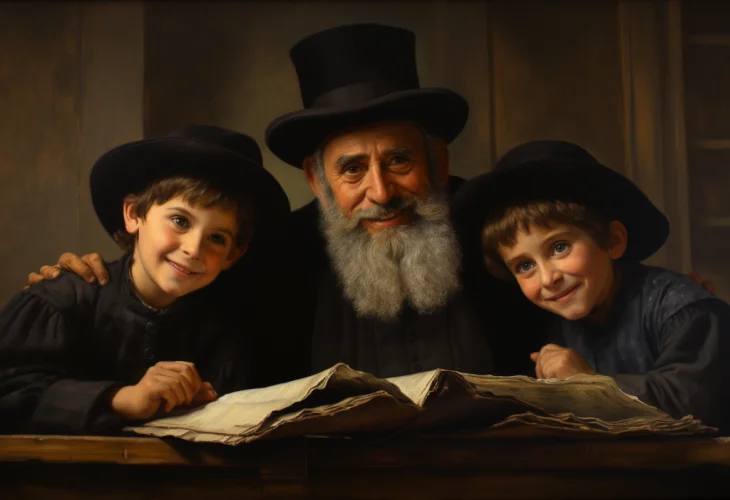A Comical Blunder: When a Scholar Didn't Pay Attention in Cheder
Every now and then, the maskilim, writers from the Jewish Enlightenment, made funny mistakes when they confidently discussed the Talmud and Jewish law. So, what happens when this scholar things in cheder fell off the radar, leading to some pretty awkward situations?

Around two hundred years ago, the Jewish Enlightenment made its mark on the Jewish world. Before then, it was understood that Jewish thought and law were determined by great Torah scholars. But this movement presented an 'alternative': intellectuals and writers who weren't necessarily versed in Torah or piety also began offering Jews advice on what to think and how to act, especially in tricky halachic situations.
Today, such thinking is recognized as secular, but back then, the division between secular and orthodox didn't exist and the literature of the Enlightenment spread within the study halls. Some couldn’t distinguish between true Torah scholars and those who carelessly suggested ideas without a deep understanding of Torah.
Some of the early maskilim may have meant well, maybe they didn't, but that didn’t change the result: Jewish society underwent a transformation. Young men started raising all sorts of questions and sometimes felt their inquiries went unanswered.
In response to the maskilim, several Torah giants emerged, producing polemic literature to counter their claims.
When reading this literature, you sometimes find amusing errors made by the maskilim authors, who spoke with great confidence about the Talmud and halacha but hadn’t engaged with these texts seriously in years. Their take on the Talmud was more nostalgic, remnants from their cheder days. So, what happens if the scholar wasn’t really paying attention in cheder? Well, it leads to some uncomfortable situations...
One such maskilim writer was Isaac Weiss, who wrote extensively on Jewish history. Although he called himself a 'rabbi' and his white beard matched the part, he didn't believe in the holiness or the elevated status of our rabbis. He regarded them, heaven forbid, as mere humans — nice, clever folks, but just people. This was a grave mistake and a major shortcoming in his faith in the sages, one of the fruits of the Enlightenment.
Teaching him the importance of faith in the sages was tough, undoubtedly. Telling him that 'if the earlier generations were humans, we're like donkeys' wouldn't penetrate his heart. But showing him he was ignorant, that was within reach.
Rabbi Yitzchak Isaac Halevy challenged Weiss in a series of books named "The First Generations," which among other things, tackled Weiss's claims. Halevy pointed out how Weiss didn’t quite hear everything in cheder, and therefore didn’t always grasp the Talmud he was reading...
One of his embarrassing errors was a dramatic piece where he portrayed the Sadducees, who opposed the Oral Torah, as seekers of justice and logic, rebelling against what they saw as rabbinic inventions, like creating a "eruv" to allow carrying on Shabbat, even though the Torah forbade it. Hence, the sages decreed that an eruv is only valid with those who 'believe in the eruv.' But you couldn’t make an eruv with Sadducees in the neighborhood because with such seekers of justice and logic, there’s no room for deceptions!
In response, Halevy writes that Weiss forgot what an eruv really is... it doesn’t permit carrying where it's forbidden by the Torah, heaven forbid! An eruv doesn’t work in a public domain, where carrying is prohibited. Quite the opposite, an eruv is a rabbinic enactment that even in places where the Torah allows carrying, like within a closed alley leading to homes (what we might call a 'cul-de-sac' today), an eruv is still needed to permit carrying.
Even today, there are scholars who write critiques on halacha without truly understanding how to read it.

